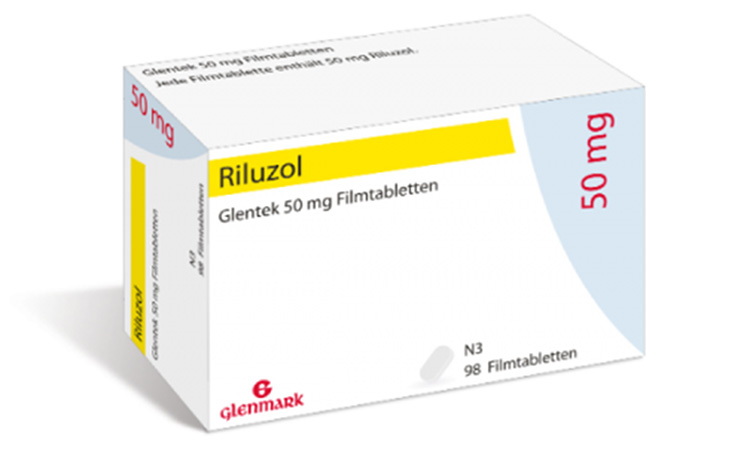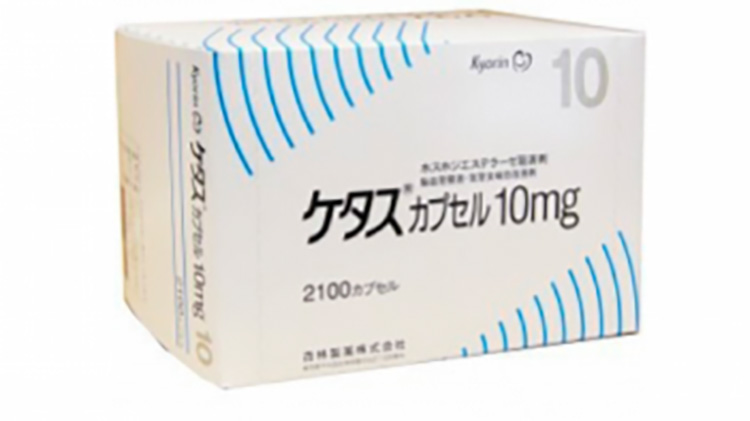Glentek/Riluzol (riluzole) vs Ketas (ibudilast)
Glentek/Riluzol (riluzole) vs Ketas (ibudilast)
Glentek (also known as Riluzole) is primarily approved for the treatment of amyotrophic lateral sclerosis (ALS), and it works by reducing the release of glutamate, which is thought to slow down the progression of the disease. Ketas (ibudilast) is not approved for ALS but has been used off-label for various conditions, including multiple sclerosis and neuropathic pain, as it possesses anti-inflammatory and neuroprotective properties. When deciding between the two, it is crucial to consider the specific condition being treated, as Riluzole is specifically indicated for ALS, while Ibudilast has a broader range of off-label uses but with less established efficacy in ALS.
Difference between Glentek/Riluzol and Ketas
| Metric | Glentek/Riluzol (riluzole) | Ketas (ibudilast) |
|---|---|---|
| Generic name | Riluzole | Ibudilast |
| Indications | Amyotrophic lateral sclerosis (ALS) | Asthma, cerebrovascular disorders, and more recently being investigated for multiple sclerosis and neuropathic pain |
| Mechanism of action | Inhibits glutamate release, inactivates voltage-dependent sodium channels, and interferes with intracellular events that follow transmitter binding at excitatory amino acid receptors | Phosphodiesterase inhibitor, which results in an increase of intracellular cyclic AMP and cyclic GMP, also has anti-inflammatory properties |
| Brand names | Glentek, Rilutek | Ketas, Eyevinal |
| Administrative route | Oral | Oral |
| Side effects | Dizziness, gastrointestinal disturbances, elevated liver enzymes, decreased lung function | Nausea, diarrhea, rash, abdominal pain |
| Contraindications | Liver disease, caution in patients with a history of lung disease | Not well defined, but caution is advised in patients with hepatic impairment and history of allergic reactions to the drug |
| Drug class | Glutamate antagonist | Phosphodiesterase inhibitor |
| Manufacturer | Sanofi | Kyorin Pharmaceutical Co., Ltd |
Efficacy
Efficacy of Riluzole (Glentek/Riluzol) in Amyotrophic Lateral Sclerosis (ALS)
Riluzole, marketed under brand names such as Glentek and Riluzol, is a medication that has been approved by regulatory agencies for the treatment of Amyotrophic Lateral Sclerosis (ALS). The efficacy of riluzole in ALS has been demonstrated in multiple clinical trials. It is believed to work by reducing the release of glutamate, which is thought to be involved in the death of neurons in patients with ALS. Studies have shown that riluzole can extend survival in ALS patients by several months, particularly in those with bulbar onset disease. Additionally, riluzole may delay the need for tracheostomy and mechanical ventilation, which are significant considerations in the management of ALS.
While riluzole does not halt the progression of ALS or reverse the damage already done, its efficacy in extending survival and delaying major milestones of disease progression provides a meaningful benefit in this progressive and fatal neurodegenerative disorder. The medication is generally well-tolerated, with the most common side effects being asthenia, nausea, and elevated liver enzymes. It is important to note that riluzole is not a cure for ALS, but it is currently one of the few treatments available that has a proven impact on the disease course.
Efficacy of Ibudilast (Ketas) in Amyotrophic Lateral Sclerosis (ALS)
Ibudilast, sold under the brand name Ketas among others, is a phosphodiesterase inhibitor with neuroprotective and anti-inflammatory properties. While it is not approved for the treatment of ALS in many countries, it has been the subject of research to determine its efficacy in this condition. Ibudilast's mechanism of action suggests potential benefits in ALS due to its ability to modulate the immune response and protect neurons from damage.
Clinical trials investigating ibudilast for ALS are less extensive than those for riluzole, and the evidence for its efficacy is still emerging. Some studies have indicated that ibudilast may have a favorable impact on the progression of ALS, but larger, well-designed clinical trials are needed to confirm these findings. As of the current knowledge cutoff, ibudilast is considered an experimental treatment for ALS, and its use is generally limited to clinical trials. Patients and healthcare providers are encouraged to consider the potential risks and benefits of ibudilast within the context of clinical studies.
Regulatory Agency Approvals
Glentek/Riluzol
-
European Medical Agency (EMA), European Union

-
Therapeutic Goods Administration (TGA), Australia

-
Medicines & Healthcare products Regulatory Agency (MHRA), United Kingdom

-
The Medicines Evaluation Board (MEB), The Netherlands

Ketas
-
Pharmaceuticals and Medical Devices Agency (PMDA), Japan

Access Glentek/Riluzol or Ketas today
If Glentek/Riluzol or Ketas are not approved or available in your country (e.g. due to supply issues), you can access them via Everyone.org.
How it works

Make an enquiry
Choose the medicine you want to buy, answer a couple of questions, and upload your prescription to speed things up. We’ll get back to you within 24 hours.


Make an enquiry
Choose the medicine you want to buy, answer a couple of questions, and upload your prescription to speed things up. We’ll get back to you within 24 hours.


Breeze through the paperwork
We'll guide you through the required documents for importing unapproved medicine, ensuring you have all the necessary information.


Get a personalized quote
We’ll prepare a quote for you, including medicine costs and any shipping, administrative, or import fees that may apply.


Receive your medicine
Accept the quote and we’ll handle the rest - sourcing and safely delivering your medicine.

Some text on this page has been automatically generated. Speak to your physician before you start a new treatment or medication.
Let's talk
If you have any questions, call us or send us a message through WhatsApp or email:
Contact us




